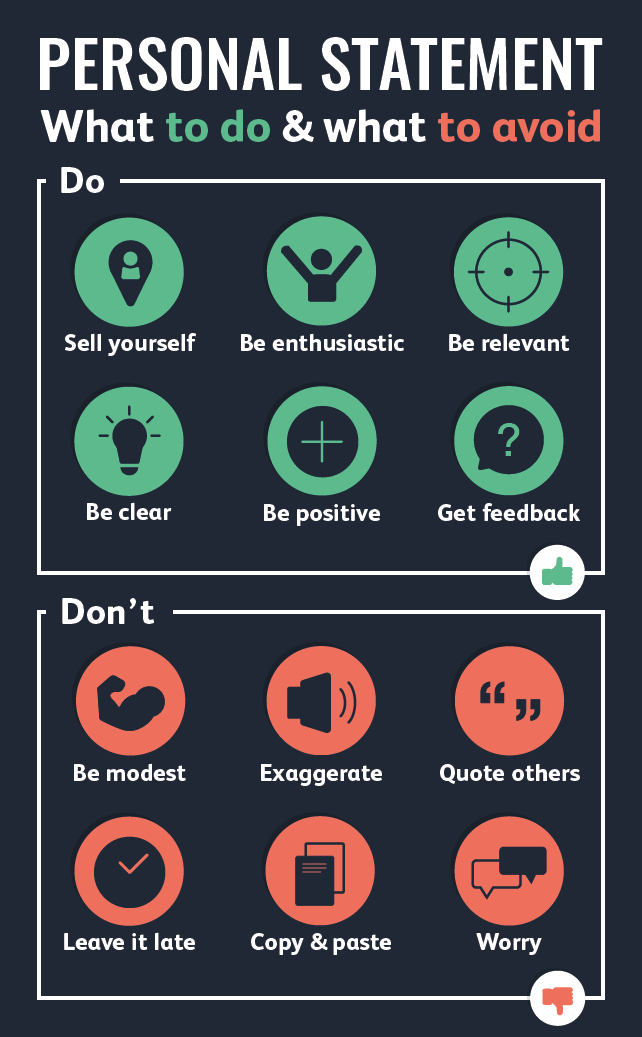How to write your personal statement | 2026 UCAS applications
How to write your personal statement
Take a look at our top tips to help you start thinking about how to tackle your answers to the three personal statement questions.
Applying for university or college to start your studies in 2026? Find out more about the changes to the personal statement format and tips on what to include.
Your personal statement is a chance to get noticed for the unique talents and experiences you have. It’s an important part of the application process as it’s an opportunity to talk about yourself and your passions, outside of your grades.
We’re going to talk you through how to make the most of the 4,000 characters and write a personal statement that stands out.
You may have heard that the personal statement has changed from one longer piece of text to three separate questions.
The three questions will help you to scaffold your answers and ensure you include exactly what universities and colleges want to see, to help you succeed in your applications. Each answer will have a minimum character count of 350 characters, which is clearly labelled on the question boxes, along with an overall character counter, so you can keep track. The 4,000 overall character limit (including spaces) remains the same, as does what you're expected to include.
Take a look at our top tips to help you start thinking about how to tackle your answers to the three personal statement questions.
This is your opportunity to showcase your passion and knowledge of your chosen subject area and to demonstrate to universities and colleges why it’s a good fit for you and your future ambitions.
Examples of what you might talk about here are:
Your motivations for studying this course(s)
Have you been inspired by a key role model or moment in your life? Maybe it’s a subject you love and want to pursue further. We’re all driven by something and it’s important to talk about how yours has led you to this course or subject area.
Your knowledge of this subject area and interests
Perhaps there’s a particular subject area you’ve researched and can’t wait to learn more about. A book or subject expert doing great things that have sparked your interest? Universities and colleges want to see you have done your research so they can be confident this is something you will enjoy and excel in. This is a great place to highlight super-curricular activities as evidence of curiosity and interest in the subject outside of the classroom.
Your future plans and why this is a good fit for you
If you already have a particular profession in mind you could talk about how you’ll use this to launch your career. If you don’t, think about what’s important to you and your future, and how the knowledge gained from your chosen course(s) will help you achieve this.
Here are some more examples for this section:
This is your chance to shout about the relevant or transferable skills you’ve gained from your formal education and highlight your understanding of how they will help you succeed in this subject area.
Examples of what you might talk about here are:
Here are some more examples for this section:
This is your chance to talk about any other activities you have undertaken outside of your formal education or personal experiences which further demonstrate your suitability for the course. This section is likely to be highly personal to you and anything you do include should reflect on why you’re including it.
Examples of what you might talk about here are:
Here are some more examples for this section:

Looking for more subject-specific guidance for your personal statement? Packed with relevant and accessible examples, our personal statement guides will give you an extra helping hand when it comes to understanding what to include, and how to evidence your skills in your answers.
If you're not already using ChatGPT or other AI tools, you've probably heard about them. But should they be used to help with your UCAS personal statement? Is it cheating? Or can they be helpful in crafting your personal statement?
Our guidance will help you understand how best to use ChatGPT and AI when tackling your personal statement, with some handy do's and don'ts.

Not sure where to start? Use this checklist to guide you through writing your personal statement. By following this checklist, you'll be well on your way to creating a personal statement that truly represents you and your aspirations.
When reading your personal statement, admissions tutors are looking for evidence that you’re passionate and knowledgeable about the subject area you’re looking to study further and have the relevant skills, experiences, and potential to be a great student.
When we consider an application we want to understand why someone has applied for the course, what interests them about it, and what inspires them to pursue education and a career in this area. An applicant is more than a set of qualifications; of equal importance is what they do outside of their studies. We use the personal statement to understand this.
